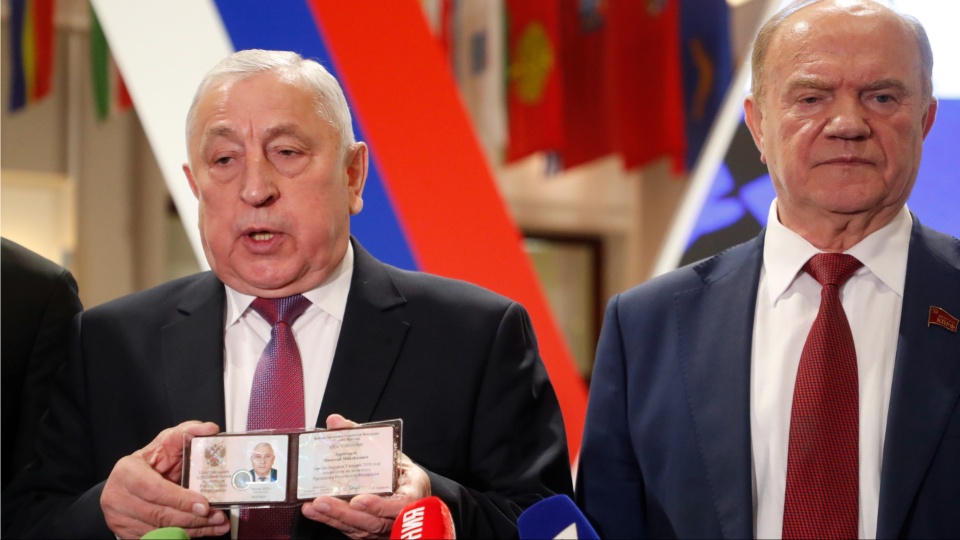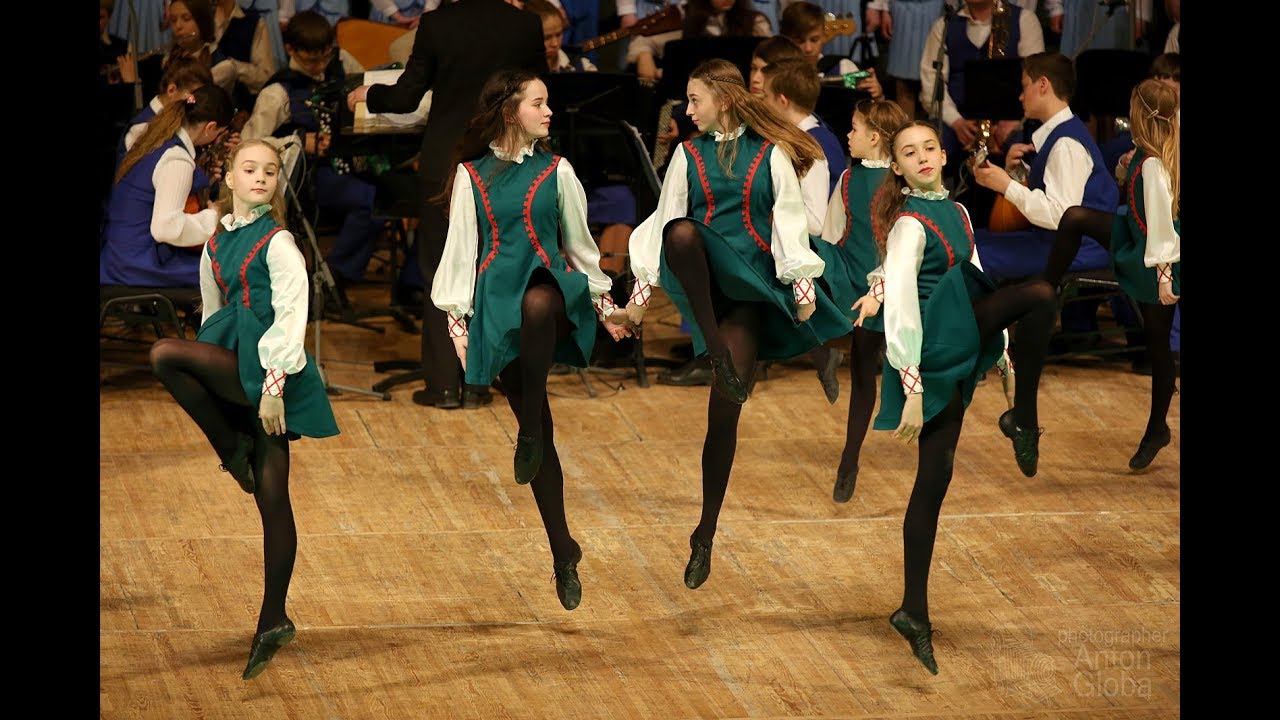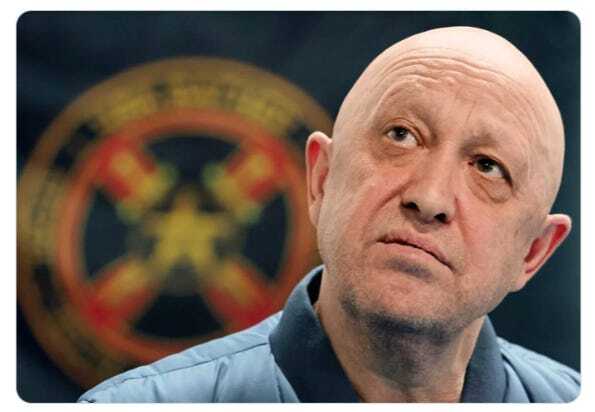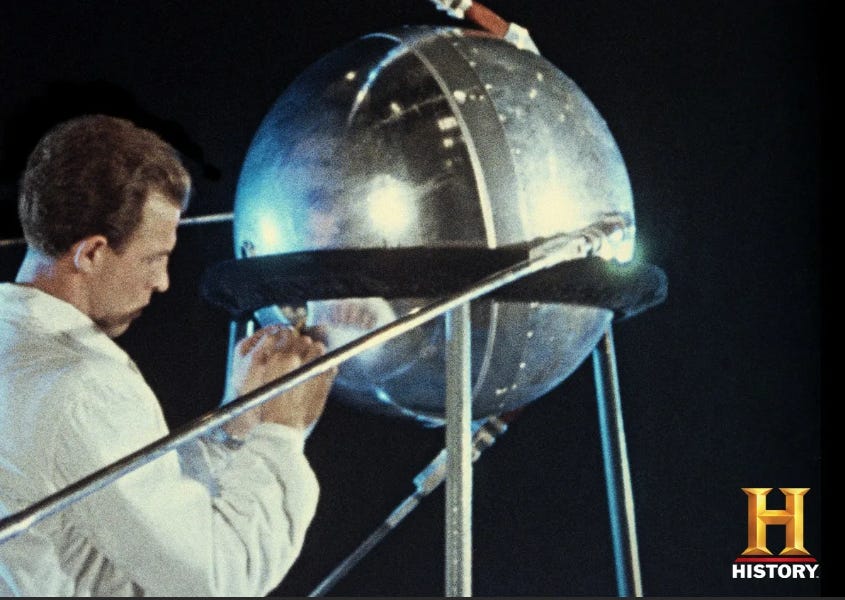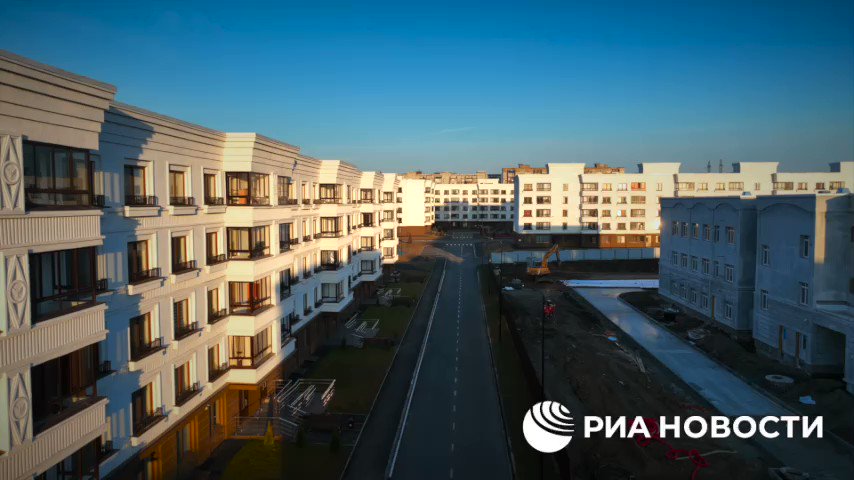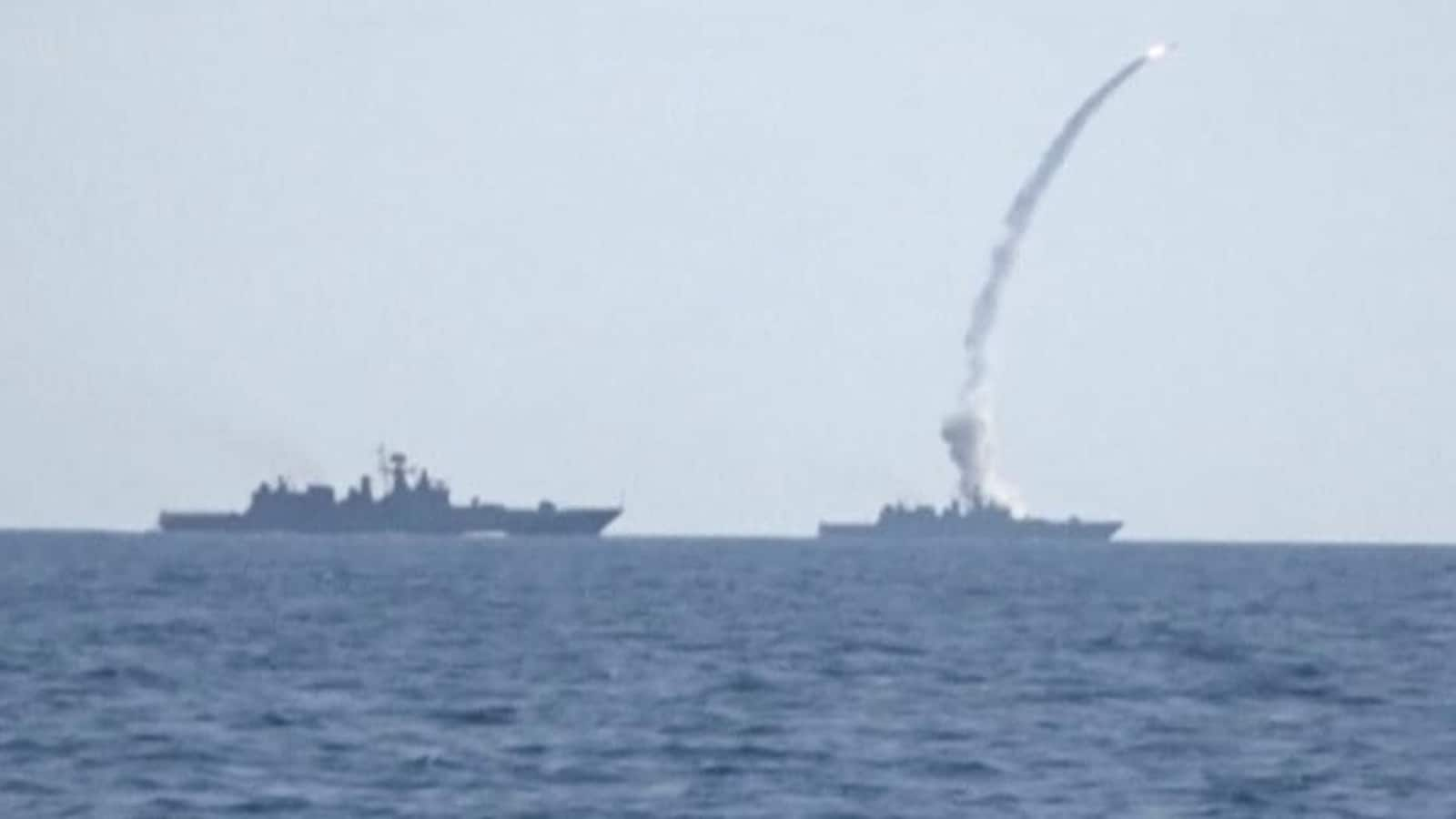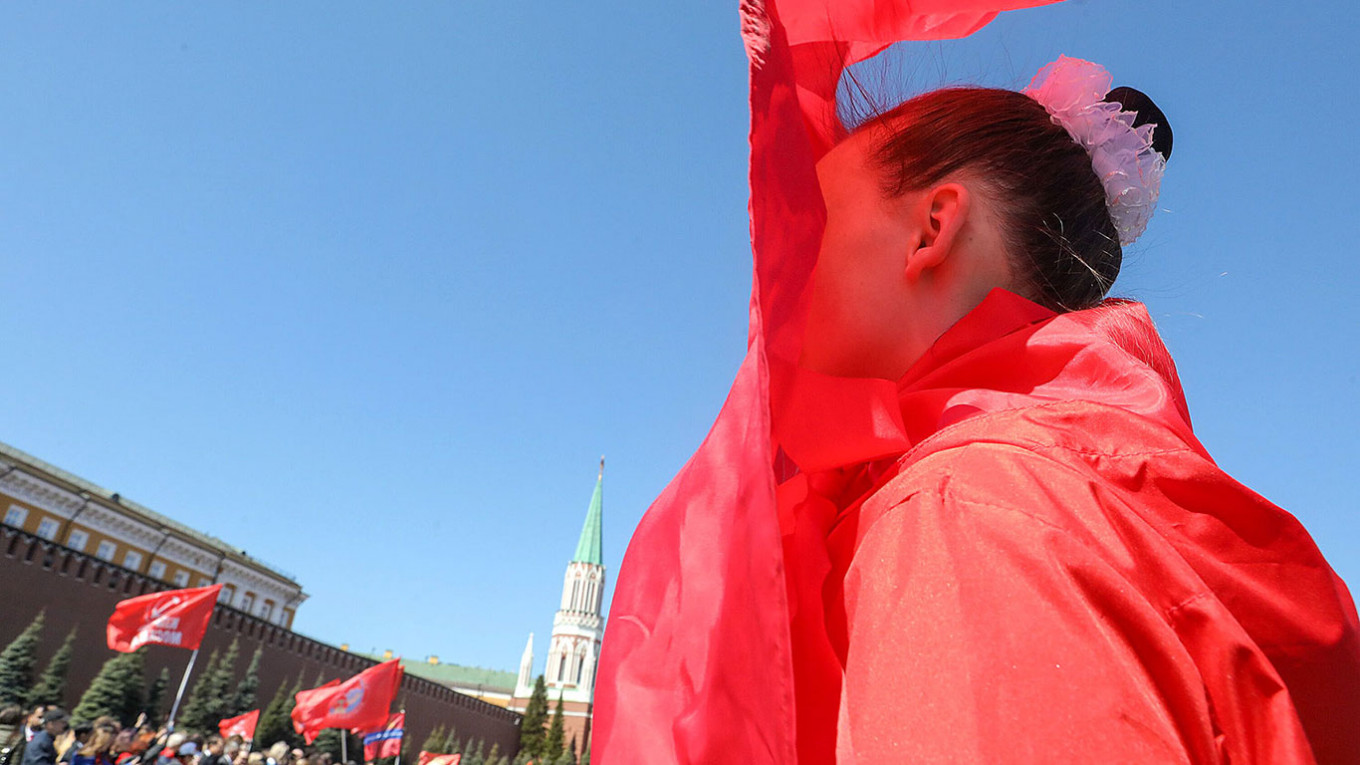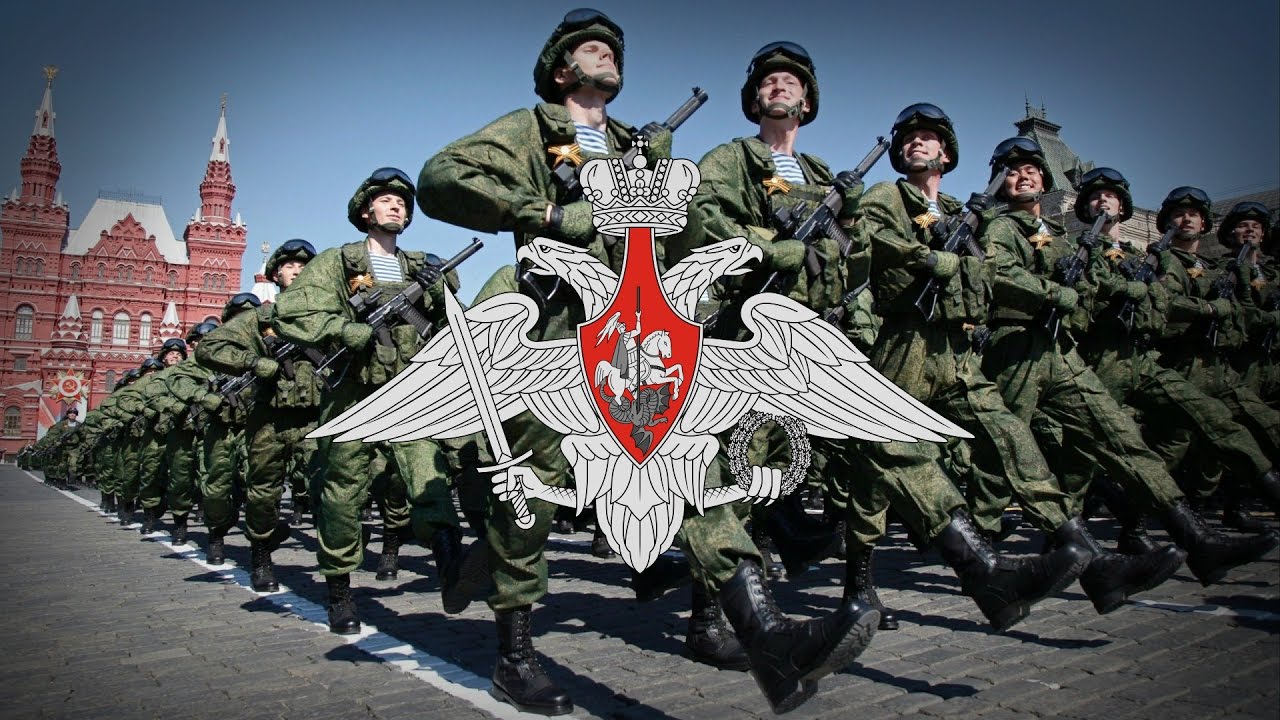Russia

The striking success of Russia's Crimean operation in February 2014 has overshadowed just how close the peninsula came to becoming another front of the post-Maidan civil war. Much praise and glory belongs not only to the “polite people” who appeared across AFU strategic objects in Crimea, but also to the people of Crimea - normal civilians who organized into militias and blocked important roads so the Maidan junta couldn't send its paramilitary enforcers. Few people remember now, but the “checkpoint movement” in the run-up to the Crimean operation prevented a lot of bloodshed. There were pro-Russian protests raging all over Ukraine's South and East, and the leaders in Kiev were still consolidating their power. Nationalist militant groups such as Right Sector sent their people into various cities to intimidate and assault the protestors (who, at this point, were merely demanding increased federalization and constitutional rights for the Russian language - I'll remind you that a de facto ban on the Russian language was among the very first “laws” adopted by the Maidan junta). The approaches to Crimea were manned by locals who established checkpoints and didn't let busses full of Right Sector militants drive towards Sevastopol. Armed with a couple of hunting rifles per checkpoint at most, the citizens of Crimea successfully defended their homes from the junta's death squads, and their courage would prove crucial to the prevention of the paramilitary escalation that led to many deaths in Kharkov and Odessa, and full-scale civil war in the Donbass. They held their ground until regular Russian forces arrived and relieved them from their vigil. https://nitter.poast.org/RWApodcast/status/1776591734404681761
With the bad relationship between the west and Russia, I was wondering how easily you could travel to Russia, and how your own western country or Russia will make it hard to enter.
 www.plenglish.com
www.plenglish.com
cross-posted from: https://lemmygrad.ml/post/3439918 > Moscow, Jan 26 (Prensa Latina) Cuba's Ambassador to Russia, Julio Garmendía, stressed that the relations between the two nations are of strategic allies at the bilateral and international levels. > > During his opening speech at the reception devoted to the 65th anniversary of the triumph of the Cuban Revolution, the Cuban ambassador outlined the development of national historiography from January 1959 to the present. > > He also highlighted the more-than-six-decade ties between Moscow and Havana since the friendship offered by the Union of Soviet Socialist Republics (USSR) when Cuba, according to Fidel Castro, was facing, perhaps, the most complex period of the war unleashed by the United States against the people. > > Garmendía argued that it would take time to explain the years of unconditional support, to which he detailed that both Governments signed significant documents in 2023 to boost direct investment of Russian capital in the Cuban economy. > > The diplomat told the attendees at the meeting that despite those complex times, Cuba currently faces an unprecedented tightening of the blockade that the United States has maintained for more than 60 years. The inclusion in the illegal list of countries sponsoring terrorism that complicates Cuba’s commercial and financial activity, the challenges in international logistics, and the rise in the prices of food and other products worsen the internal situation in Cuba. > > Other factors, including media war, incitement to the so-called regime change, and other subversive events, also add to the list of actions against the Cuban Revolution. > > Russian First Vice Chairman of the State Duma Ivan Melnikov, Deputy Foreign Minister Sergey Ryabkov, and Deputy Defense Minister Alexander Fomin chaired the event.
 www.rt.com
www.rt.com
Domestically made goods in the segment are now sold to 60 countries  © Getty Images / Bloomberg Creative Russia’s exports of dairy products increased by 18% year-on-year in 2023, the head of the National Union of Dairy Producers, Artyom Belov, said on Monday, as cited by TASS. ”The growth of consumption and exports has become a major driver for the domestic market over the past several years, particularly in 2023,” Belov said, adding that “consumption rose by nearly 5% versus 2022.” He added that Russia had begun exporting the types of dairy products for which demand is high globally, including those considering dairy commodities. “For example, exports of powdered skim milk saw a nearly fivefold growth, while suppliers of powdered whey almost tripled,” Belov explained. Meanwhile, Vladimir Skvortsov, the head of food and processing at the Russian Agriculture Ministry, said that Russian dairy products are now sold to around 60 countries and that almost three-quarters of domestic enterprises export their output. ”Traditionally, Russia sells dairy products to the CIS states and former Soviet countries,” Skvortsov said, adding that the latter category has seen a strong expansion. He also mentioned that Russian producers had started exporting products to Algeria, the world’s second-biggest consumer of dairy. Agriculture Minister Dmitry Patrushev recently noted that raw milk production in the country has been growing over the past five years, adding that it reached 33.5 million metric tons in 2023, nearly 0.5 million metric tons more than during the previous year.
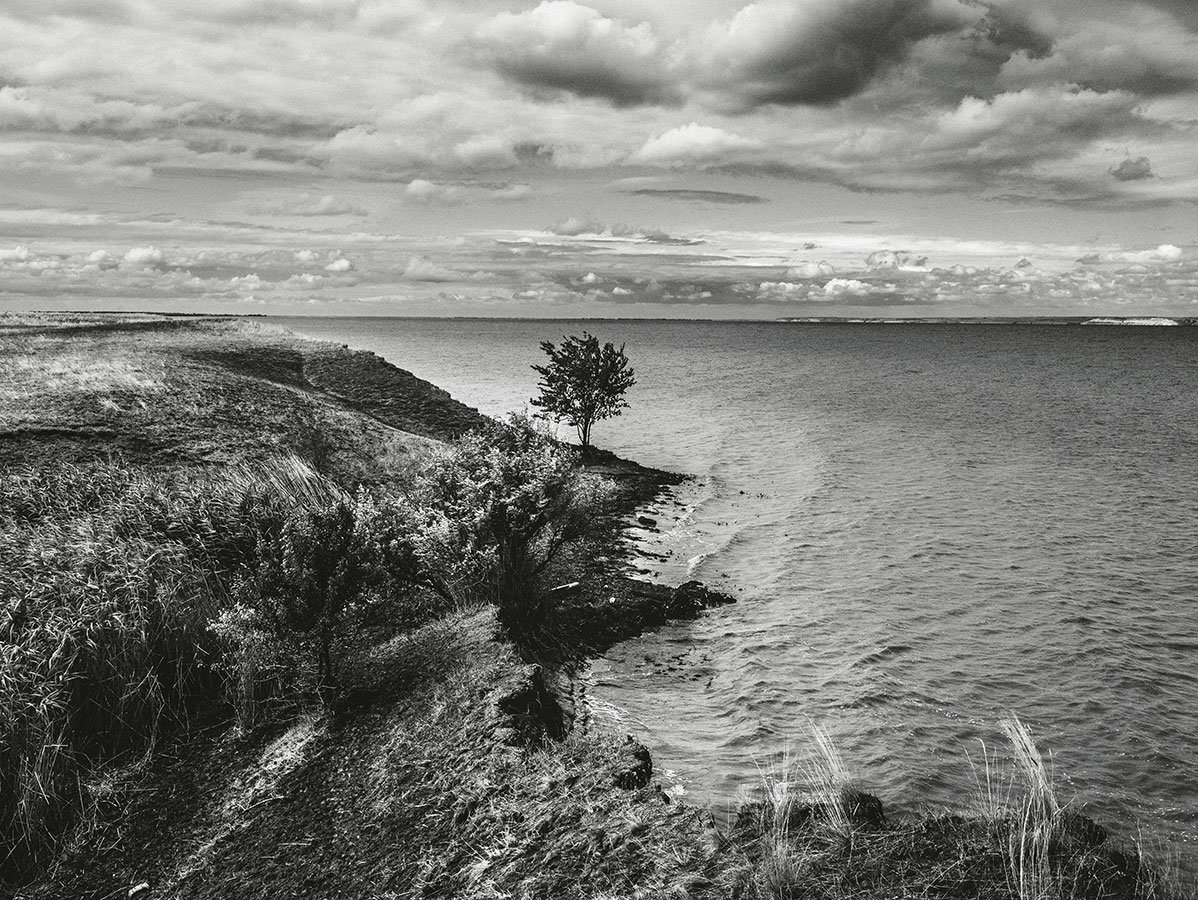 harpers.org
harpers.org
Despite the obvious liberal, pro-Western slant and a pronounced anti-Soviet bias, this article actually does a good job of painting a vivid picture of what Russia is like these days. It is interesting to see the various contradictions (capitalist but with socialist nostalgia, simultaneously coexisting communist sympathies with imperial Russian ones, etc.) that us Marxist-Leninists have been pointing out for some time in the abstract take concrete form in the anecdotes from the author's month long trip. What seems to baffle these western reporters most, even more than Russia's resillience to sanctions, or its defiant insistence on protecting its sovereignty and its own culture, is the revival of pro-Soviet and pro-Stalin sentiments. He points out with great shock how he finds that communists are getting elected to political office and how they have busts and statues of Lenin and Stalin. He refuses to understand this phenomenon of Soviet revivalism even when someone tells him very directly that the 90s, which the West consider the ideal period in Russia, a supposed golden age of liberalism, actually was the worst in living memory for most Russians today: > Andrei, a twenty-four-year-old electrical engineer who was visiting from Moscow with three friends, spontaneously told me of Stalin that “he was a winner.” We were in front of an original military map of the Soviet counteroffensive. “For us young people, Stalin is number one. We must fight evil like during the Great Patriotic War.” Did any negative associations come to mind? “They say a lot of things, but what matters is the results,” he said. “I think there were more deaths in the Nineties with the gang wars and alcohol. That was our first experience with democracy—the worst period of our history.” The author is of course a bit of a drama queen and hilariously tries to make himself look like some brave undercover agent in a totalitarian dystopia, pointing out how he used VPN to hide his searches and encrypted his communications... as if anyone actually cared. But this is sort of thing is to be expected, they are writing for a western audience that wants this sort of fluff. And if we start to analyze a bit more carefully the way he structured the article it is fairly obvious what he is trying to do. When you read the quotes he gives of the people he interviewed you get the pretty clear impression that he tries simultaneously to portray Russians as hopeless, downtrodden and oppressed (the liberal ones) but also bloodthirsty brainwashed fanatics (the nationalistic ones). Even so i do recommend giving this a read, it's an interesting piece.
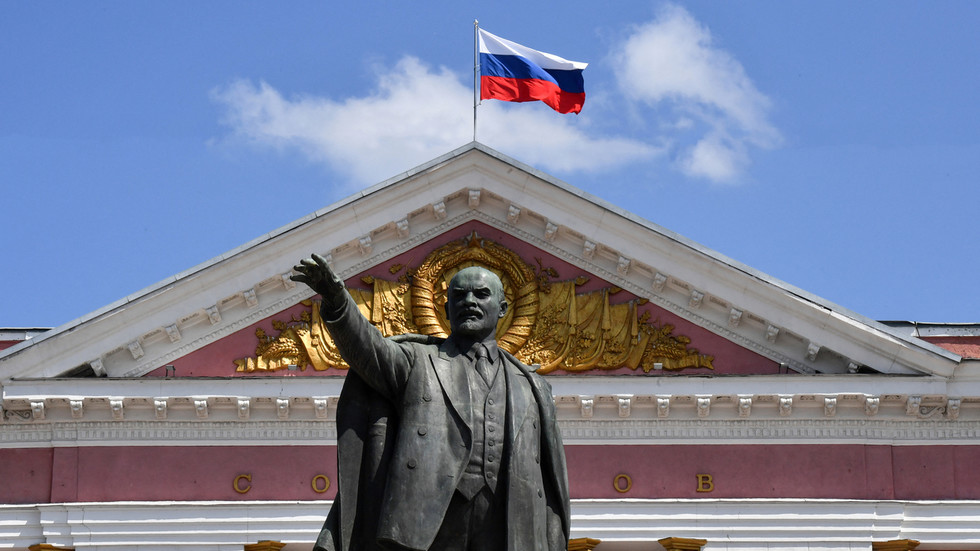 www.rt.com
www.rt.com
The founder of the Soviet Union remains a highly divisive figure 100 years after his death 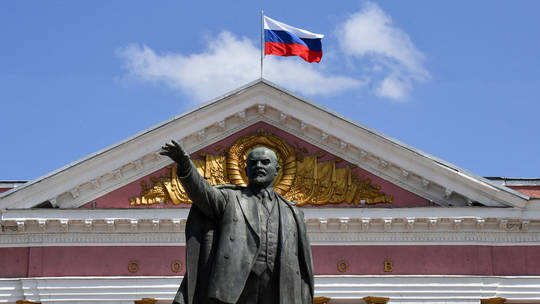 FILE PHOTO: A Russian national flag flies in the wind above a monument to the Soviet State founder Vladimir Lenin in the Russian city of Kursk on May 28, 2023. © Olga MALTSEVA / AFP Almost half of Russians have a high opinion of Bolshevik revolutionary leader Vladimir Lenin, according to a poll released on Friday by the country’s Public Opinion Research Center (VCIOM). The survey, conducted ahead of the 100th anniversary of Lenin’s death, found that Russians remain sharply divided over the Communist leader’s historical legacy. Some see him as a wise ‘vozhd’ (leader) who paved the way for the 1917 Great October Socialist Revolution which made society fairer, while others consider him a blood-stained tyrant whose actions led to the deaths of millions. The October Revolution sparked a civil war in Russia, with the Bolsheviks emerging triumphant after several years of brutal fighting and uniting most of the regions of the defunct Russian Empire under their rule. In 1922, these territories were officially combined to form the Soviet Union. Lenin, who played a key role in this tumultuous period, died two years later, on January 21, 1924. Some 47% of respondents have a “rather positive” view of Lenin while another 30% are ambivalent, according to the VCIOM poll. A further 15% have a negative opinion of the Bolshevik leader. Regarding the results of his rule, 36% believe Lenin did more good than harm to Russia, while 30% think the pros and cons balanced each other out. Of those surveyed, 19% said that his actions were mostly harmful. Of the respondents, 24% believe the Bolshevik leader is mainly remembered as the founder of the Soviet state, while 10% see him as a calculating politician who imposed his will on a large country. Another 9% see him as a political adventurer and 7% as a thinker who saw far into the future. Only 6% think that in 50 years’ time Lenin will be seen as a brutal dictator. Russians are not only divided on Lenin’s historical legacy, but also over whether his embalmed body – which is now kept in a mausoleum on Red Square – should be removed and buried. A third of respondents see no reason to do so, while 30% insist on immediate reburial in a cemetery. Another 27% think Lenin should be buried, but only when such a move does not cause controversy. In 2021, Kremlin spokesman Dmitry Peskov said Moscow had no plans to rebury Lenin, arguing there were many more important items on the agenda.
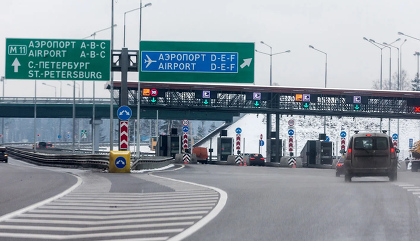 english.news.cn
english.news.cn
ST. PETERSBURG, Jan. 18 (Xinhua) -- Electric vehicles can continue to drive free of charge on federal toll highways in 2024, the Russian government's press service said Thursday. Russian First Deputy Prime Minister Andrei Belousov, who supervises the federal project "Electric and hydrogen car," said that the privilege for electric vehicles will resume on Jan. 19. The country's experimental project on the free passage of electric vehicles on toll sections of federal highways was launched on March 1 and ended on Dec. 31 last year. The program was an incentive for Russians to purchase electric vehicles. Belousov said about 5,000 motorists took advantage of the privilege during this period. Sales of new electric vehicles in Russia in 2023 amounted to a record of slightly more than 14,000 units, 4.7 times more than a year earlier, the country's analytic agency Autostat reported.
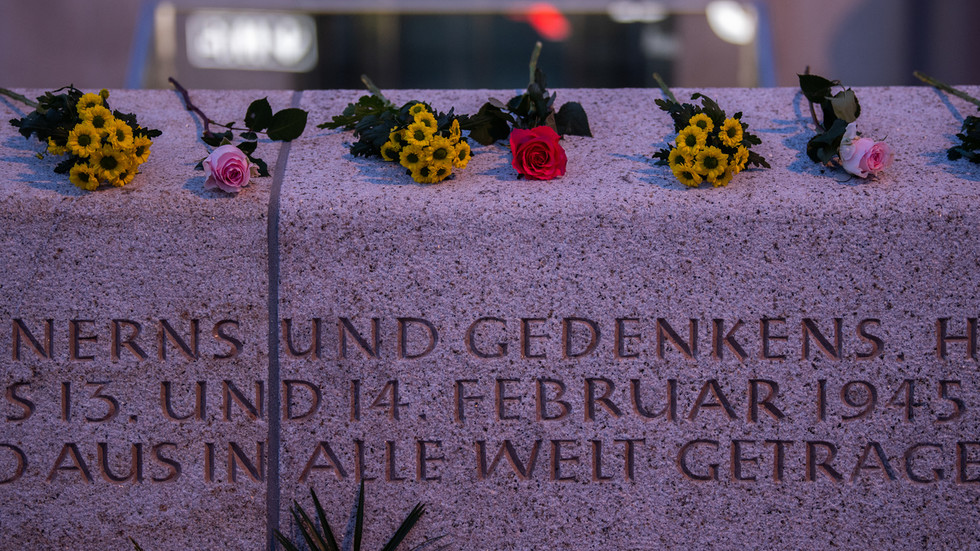 www.rt.com
www.rt.com
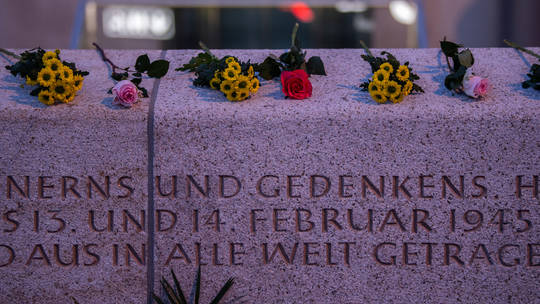 Dresden’s removal of the Altmarkt memorial is an “act of historical vandalism,” Russian Foreign Ministry spokeswoman Maria Zakharova has said, accusing the German authorities of revisionism on behalf of London and Washington. British and American bombers first struck Dresden on February 13, 1945, killing tens of thousands of Germans, many of them civilians. Several thousands were cremated at the Altmarkt and, for many years, a stone bench on the square bore an inscription commemorating that – until it was removed recently. “The peaceful areas of Dresden were subjected to a completely disproportionate, terrifying bombing bordering on a war crime,” Zakharova said in a Telegram post on Tuesday evening, suggesting that the UK and the US deliberately destroyed the city because it was assigned to the future Soviet occupation zone. Tens of thousands of civilian casualties remained a reminder that even the fight against the absolute evil of Nazism cannot justify the senseless killing of children for political purposes,” Zakharova said, adding that the memorial became “an inconvenient irritant” to Germany’s membership in NATO after reunification. The German government is now erasing history even as it supports “the glorification of fascist criminals by the government in Ukraine,” Zakharova wrote. “We should demand the speedy restoration of the historical inscription!” The now-removed Altmarkt memorial called the site “a place of remembrance, memory and commemoration” of the 1945 bombing, “when the horrors of war that spread from Germany across the entire world returned to our city.” In a statement on Tuesday, Dresden authorities acknowledged that the inscription had been removed, but called it part of a planned “redesign” commissioned in 2019 and apologized that this was “not communicated in advance.” “The location of the inscription on a bench has repeatedly been criticized for not being worthy because people were sitting in front of the text. There was also damage and repeated graffiti,” according to the city hall. “The criticism in this matter is justified because we acted extremely poorly from a communications perspective,” said Mayor Dirk Hilbert. “However, we will not accept that this occasion is used for hate speech and conspiracy theories.” Several years ago, Dresden began a project to “contextualize” some of the “problematic” monuments. In 2022, a stone stele with “more information” about Altmarkt was placed near the memorial bench, but was “damaged during construction work” last year, the city hall said, adding that the repaired stele would be put up “by next week at the latest.” According to the city hall, the new stele will say that the February 1945 air raids have been “politically exploited and reinterpreted” and that Dresden accepts its “historical responsibility” for Nazi crimes against humanity and calls for “maintaining and promoting peace in Europe and worldwide.”
The film "Russians in Georgia" has been released and what's so surprising about it? And then why not make the film "Georgians in Russia" There are up to a million Georgians in Russia. They hold excellent positions. And they do not feel any oppression based on nationality. They don't ask why they came! Yes, some are dissatisfied. And the reason for the hostility is not in them, but in the fact that Georgia does not recognize that the Ossetians have been living on their native land for more than one hundred years. And for Georgia, South Ossetia is still "samachablo". The trouble is that in Georgia, Ossetians are still considered second-class citizens. And therefore, unfortunately, some Ossetians are forced to make their surnames as Georgian. So that they do not mock about them. Of course, in recent years, there have been people in Georgia who respect the Ossetian people, and this is wonderful. But they are few. In Georgia, the theory of Gamsakhurdia, the worst enemy of the Ossetian people, is that the Ossetians are a people who have come and it is time for them to get out of Georgia, and no one in the whole of Georgia will dare to think otherwise. And the fact that the Ossetians have been cultivating these lands together with the Georgians for centuries, repeatedly shedding blood, defending these lands! Doesn't that count? Only during the Great Patriotic War, my small nation donated 22 thousand Ossetians. From my village, Jvaris Ubani, 20 houses, and 18 people were taken to the front. Only one came back alone, disabled. The village disappeared.
I am a citizen of the Soviet and the citizen of the Russian Federation. I was born on September 15, 1930. I served 30 years in the Air Defence Forces as a Colonel. I am a historian and a participant of the Cuban Missile Crisis. I remember vividly the tense military and political situation that arose globally in October 1962. John Kennedy saved the world from destruction. We all should be grateful to him. And he was assassinated. We all thought that the lesson from Cuba would stay with humanity forever. Alas, greed, malice, and historical animosity towards each other are creating a catastrophic situation in the world. The declaration of war in Ukraine is very hard for me personally because I served in Ukraine and am quite familiar with this wonderful nation. #The bond between Russians and Ukrainians There were many Ukrainians in the Soviet army, both as conscripts and officers. They served and fulfilled their duties precisely and clearly. Many Ukrainians set an example in fulfilling their military duties for others. I had many officer friends during my service. I cannot understand how I could pick up a rifle and shoot at my former comrade with whom I was friends. And it’s not just that. With this decision, we have sown deep-seated animosity between the Russian and Ukrainian peoples. We have accomplished what the CIA has been persistently and longingly seeking. #The roots of the conflict Searching for the reasons for today’s hostile relations not only with Ukraine but with all the former Soviet republics in Lenin’s and Stalin’s time is not just laughable but also repugnant. Yes, the Soviet authorities had many negatives, but animosity between peoples was nipped in the bud. How the Bolsheviks achieved this should have been studied. Why did Russophobia flourish so vigorously in the Soviet Union? Could the reason be within us, Russians? I remember about 15-17 years ago, the New Year began with new unpleasantness between Russia and Ukraine due to gas prices. I witnessed a certain arrogant attitude towards the Chechen delegation from Yeltsin. The Chechens are a proud people, and “his majesty” did not take that into account, leading to bloodshed. We couldn’t find common ground with an independent Ukraine, and blood is being shed. How to explain to a mother of a soldier who died in this war for what noble ideals her son died? That someone attacked our homeland? When a soldier dies defending the homeland from enemies, such a soldier is posthumously honoured. But when they portray him as the attacker, there is no glory in that. #The consequences of the war There is yet another circumstance. In 2008, Russia defended a small nation from a Georgian attack. The global media slandered extensively, claiming that supposedly Russia attacked defenceless Georgia. I cannot imagine how they will write, speak, or show Russia now when Russia indeed attacked Ukraine to prevent it from using nuclear weapons, which Ukraine doesn’t possess yet, against Russia. And we have tens, if not hundreds, and thousands of them. The entire world despises us. The great Russian people, who have repeatedly saved humanity, do not deserve this. The military operation in Ukraine causes fear in other neighbouring republics. And if they didn’t consider joining NATO before this operation, they will surely think about it now.
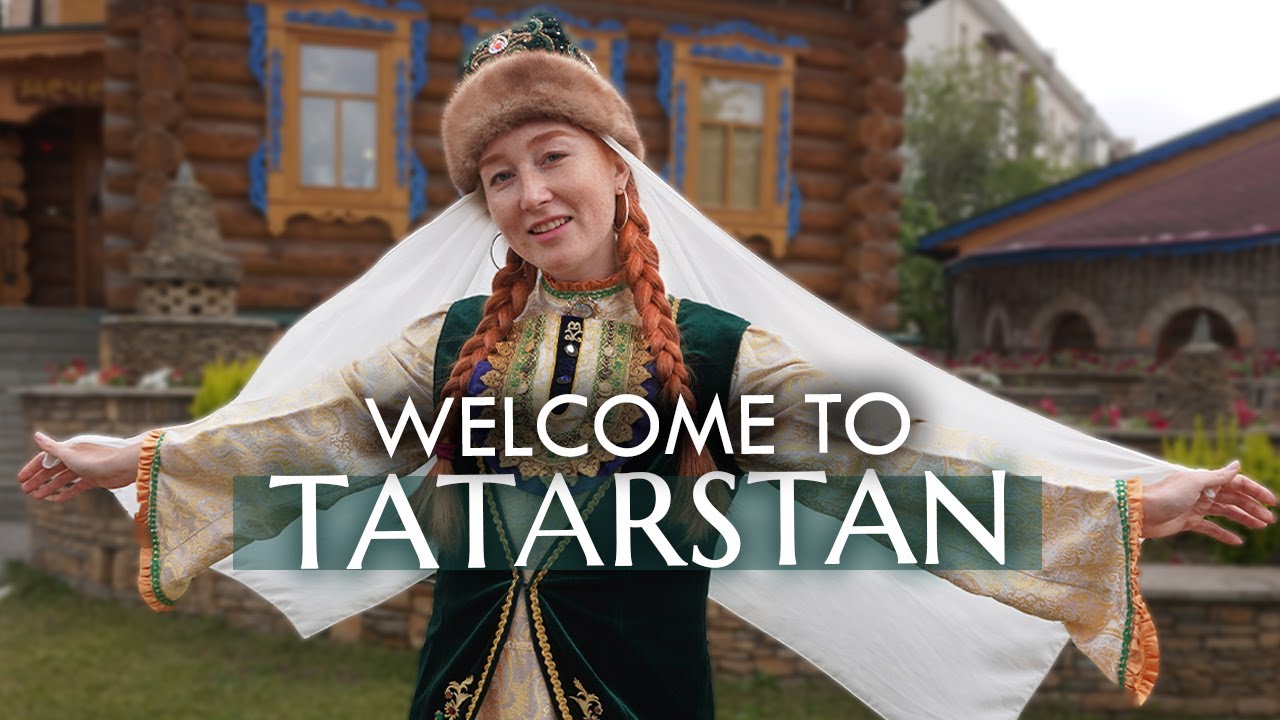 youtu.be
youtu.be
We need more wholesome videos like this (especially ones produced so well) which showcase Russia's rich and diverse cultures, it's a great antidote to anti-Russian propaganda and helps normies overcome the negative image of Russia created by the Western media.
"But I’ll tell you something unexpected. They too – these topics and these people – have the right to win, show and tell, because this is also part of society. This is also what people live by."
President of Russia Vladimir Putin: Ladies and gentlemen, friends. I would like to sincerely welcome all the participants of the Russia-Latin America International Parliamentary Conference. This conference, initiated by the leaders of the Russian State Duma, has brought together representatives of legislative bodies and leaders of political parties, heads of public organisations, experts and diplomats from most Latin American countries. A group of high-ranking legislators from Latin America, the people who represent their constituents and who are called upon to serve their interests, has arrived in Moscow. This again confirms that their nations are willing to develop a comprehensive mutually beneficial partnership with Russia. We are convinced that promoting direct dialogue between parliaments will open up opportunities for deepening our cooperation and expanding it through new areas of joint activity. The State Duma speaker informed me about the conference’s large and very busy programme yesterday. I am sure you will have a rewarding time at the sessions and round tables discussing the role of parliamentary diplomacy in strengthening cooperation between Russia and Latin American countries across the board: in politics and security, as well as socioeconomic and humanitarian spheres. Let me note that Russia’s and Latin America’s views on international issues traditionally have a lot in common. Latin Americans have always strived for independence, and the history of your continent is full of the most notable examples. This happened during the period of struggle against colonialism during the time of the famous Simon Bolivar, who became a symbol of freedom not only for Latin America, but perhaps for the entire world and for all humanity. This also happened in the second half of the last century, when the continent gave the world such selfless fighters for justice and social equality as Salvador Allende, Ernesto Che Guevara, and Fidel Castro. (Applause.) I have to say that this applause is appropriate, as they say; it is applause that speaks to the role of those people whom I have just named. I remember my meetings with Fidel Castro, there were several of them. That was a rock, you know? That was a man who thought about people every second, and not only about the Cubans: he thought about all of Latin America, he thought about all the people on planet Earth. And indeed, his entire being was imbued with concern for achieving the common good and justice. He had a unique personality. These are the kind of people Latin America gives birth to. It would not be an exaggeration to say that even today Latin American countries are showing a pattern in the success of the progressive process of forming a multipolar system of international relations based on equality, justice, respect for international law and each other’s legitimate interests. In this new polycentric architecture, countries of Latin America, that have enormous economic potential and human resources and want to pursue a sovereign, independent foreign policy, will have a leading role in the world. There is no doubt about it. Russia sincerely wishes the countries of the Latin American region to develop progressively and dynamically and strengthen their positions in the world economy and politics. We have always advocated for Latin America, in its unity and diversity, to be strong, independent and successful. In order to achieve this, we are ready to build bilateral relations as well as work closely with integrational associations of Latin America, such as the Community of Latin American and Caribbean States, the Bolivarian Alliance for the Peoples of Our America, and the Southern Common Market. In particular, we will help ensure that these associations establish practical ties with the Eurasian Economic Union and compare approaches on current issues of trade policy, tariff regulation, stimulating investment, and technology transfer. Of course, Russia is happy that there are countries in Latin America, which plan to join BRICS as full members or partners. You know, departing from the text of my speech, I can say this: we have information and understanding of what is happening in different Latin American countries, while different political forces take different approaches to the associations I mentioned, including to the process of joining BRICS. We know this and we are aware of different trends within different political circles, particularly ahead of various political events inside these countries. However, BRICS is an organisation which is not a military alliance but rather a forum for coordinating approaches and developing mutually acceptable solutions based on sovereignty, independence and respect for one another. My strong belief is that whatever is taking place within political circles and political parties in the countries which are on the way to joining or have joined or are seeking to join and work with these organisations, including BRICS, no matter what, all political forces will have to factor in people’s sentiments. Voters’ sentiments, in the broad sense of the word, in all Latin American countries add up to the aspiration for freedom and independence. All countries and political parties in Latin America will have to keep this in mind. This means that, of course, we will cooperate strategically, including on the issues which are key on the BRICS agenda. Why am I speaking about this? The reason is that the BRICS Chairmanship will pass on to Russia soon and I believe we will do the utmost to make sure that the so-called global majority has the sense that they are not simply the majority in terms of the population size of their countries but they are the majority on account of their development prospects. (Applause.) As for our relations with Latin American countries, I would like to specially mention several things that are of priority importance. These relations are, first of all, friendly, constructive and mutually beneficial, and they develop on the basis of equality and respect for each other’s interests. Over the previous five years, trade between Russia and Latin America has increased by 25 percent. Russia’s exports have climbed by 130 percent and include goods that are needed by Latin American countries, such as wheat, fertilisers, oil products and many other essential goods. These are our traditional markets. Of course, a faster transition to settlements in national currencies, and the creation of channels for financial and banking cooperation, as well as of new transport and logistics chains – all this facilitates the further development of mutual trade.
Maria Zakharova: We consider Canada an extremely unfriendly state whose authorities have stained themselves by colluding with Nazism and betraying their own history, and we will shape our policy accordingly. This is the apotheosis of the Canadian Government’s immoral behaviour. That doesn’t mean that it hasn’t been or won’t be worse but it is the most telling example of what we have been talking about for many years. The homage paid in the Canadian Parliament on September 22 to 98-year-old Bandera follower Yaroslav Gunko (Hunka), who volunteered to serve in the Waffen-SS Galicia Division, accompanied by a standing ovation from Prime Minister Justin Trudeau, the Speaker and members of the House of Commons, and Western diplomats who were invited to attend, including, characteristically, the German ambassador, continues to cause anger and condemnation even among Canada’s closest allies. This was the last thing that Canada’s ruling Liberals expected. I see that they were taken unawares by what has happened. As for Justin Trudeau, he is trying to justify himself by saying that he knew nothing about the initiative of the Speaker, who immediately repented for the incident. He is not the Speaker any longer. The Prime Minister’s team rushed to remove the compromising videos from the internet. Funny people they are. It is simply not credible that the head of government and his right-hand official Deputy Prime Minister Chrystia Freeland, the grand-daughter of Bandera follower Mikhailo Khomyak, were in the dark. Does this mean they did not know who they were applauding? How then do they manage to govern the country? Most importantly, not only did they know, but they are ideologically committed to this campaign to support the Banderites, the OUN-UPA [the Organisation of Ukrainian Nationalists and the Ukrainian Insurgent Army] and Waffen-SS Galicia Division – both members of these criminal structures and their followers. They are acting as sponsors of all these structures in Ukraine in their contemporary format, sending financial aid, and providing informational and political support. Now it turns out that they “didn’t know”. How convenient. They knew what they were doing and they have been doing it for many years. Only this time they went too far with the Russophobia, having insulted not only us, something they regularly do, but also the victims of the Holocaust and the anti-Polish mass terror. I wonder, though, why does it not appear to be insulting to the memory of the Holocaust victims when tribute is paid in Ukraine to the members of the Waffen-SS Galicia Division or Banderites? Or is it the question of geography? If torchlight processions take place in Ukraine, with people carrying portraits of Stepan Bandera and Roman Shukhevich, and OUN-UPA members are called heroes and are paid benefits, it fits in with Western logic. However, if the same things take place, say, in Canada with the direct involvement of the country’s leaders, it is “not very good.” What is the criterion? What is the standard? Justin Trudeau and his team are trying to shift responsibility to someone else, saying that the incident is the result of Russian propaganda and misinformation. Was it Russians who invited Yaroslav Gunko and prepared background materials for Justin Trudeau so he can decide whether he should take part in this Nazi bacchanalia? Is it Russian newspapers that have been glorifying Vladimir Zelensky in Canada for many years, commending Canada for its policy towards the Kiev regime? What does Justin Trudeau allow himself to do? What is he all about really? It all is so awkward and ridiculous that some journalists in Canada, who definitely are not Russophiles, are calling on Canadians to face the reality and give an honest assessment of what the current Canadian government is doing. The internet is shamelessly extolling Yaroslav Gunko as a Ukrainian Canadian hero and a World War II veteran who fought for Ukraine’s independence from the Russians (this is what many media outlets say) and continues to inspire the Armed Forces of Ukraine. Let us rely on well-known facts showing how Canada gave refuge and looked after the executioners and members of punitive squads from the SS Galicia Division. There are more than enough available facts, including because we have also made them public. The Russian Foreign Ministry and the Russian Embassy in Ottawa have repeatedly discussed the crimes of this Nazi formation and the history of its “relocation” to Canada following the defeat of the Third Reich, and the role of the descendants of Stepan Bandera’s followers whom the Anglo-Saxons, including those in Canada, gave refuge to, cared for, nourished and retrained. These materials discuss the assertion of the ultra-nationalist regime in Kiev. The 14th Waffen SS Galicia Volunteer Division was established in 1943 and consisted of Ukrainian ultra-nationalists from the OUN-UPA who exterminated the civilian population. This was their objective. Instead of merely fighting, they exterminated Russians, Belarusians, Ukrainians, Poles and Jews. The formation directly engaged the advancing Red Army in the summer of 1944, when the Nazis found themselves in dire straits. For example, the Galicia Division fought Red Army units near Brody, where most of its soldiers were encircled. In all, 60 percent of its personnel were killed or wounded in action. The division’s surviving elements retreated together with the Wehrmacht and later took part in crushing the Warsaw and Slovak uprisings. In January 1945, they fought the partisans in Yugoslavia. In effect, the combat history of this formation, whose members are getting their own monuments and are being applauded in Canada, proved to be very short and ignominious. But one area where the formation really achieved success is with committing atrocities and executing civilians, as proved by many historical records. Today, Canada is at the forefront of those in the West who are actively falsifying the history of World War II. In August 2022, the Russian Foreign Ministry published a report Regarding the Situation with the Glorification of Nazism and the Spread of Neo-Nazism and Other Practices That Contribute to Fuelling Contemporary Forms of Racism, Racial Discrimination, Xenophobia and Related Intolerance. A large section of this report deals with the glorification of Nazi criminals in Canada. I suggest that you read it. I can make the same recommendation to Justin Trudeau, who is accusing Russia of spreading disinformation on this issue and claiming that what has happened to him is the result of Russian propaganda. The report was posted on the Foreign Ministry website a year ago. Let Chrystia Freeland print it out for him. He will find a lot of interesting facts there, become more educated, and he will understand the gist of the current accusations against the Canadian government. Although I am sure he understands it already, even if he pretends not to. Russophobia has reached a clinical phase where even formations of the SS can be called allies in the fight against Russia. Moreover, Canada is financing and training ideological heirs of the Galicia Division within the Ukrainian Armed Forces. This is a fact that no one is even trying to hide. Canadian parliamentarians warmly applauded a war criminal who swore allegiance to Hitler and fought against Russians. In the House of Commons, not a single elected anti-fascist representative left the room in protest over the betrayal of their own history and the memory of tens of thousands of Canadians who died in the war against German Nazism. These parliamentarians were aware of the agenda of the event in advance. The conclusion is clear: Russophobia and liberal fascism now go hand in hand and have been elevated to the status of the state ideology in Canada. This celebrating of a Nazi, later denied by Prime Minister Justin Trudeau as “Russian propaganda,” is a case in point. The collective West takes a standard approach: if you are not sure who to accuse of what, blame Russia, and everything will be fine. It’s no longer funny. It’s a tragedy for the modern Western community and everyone who pledges allegiance to it. It is highly symptomatic that Russophobia is passed down through Canada’s ruling elite. The aforementioned Chrystia Freeland celebrates (not that she’s ashamed or trying to distance herself from it) the memory of her heroic roots. Who was her grandfather? During the German occupation of Poland, Mikhailo Khomyak (this fact was covered multiple times) published the Krakowski Wiesci newspaper in Krakow and later in Vienna. What is that newspaper? It didn’t just serve the Nazi occupiers. It was taken from the Polish-Jewish publisher Mojzesz Kanfer. What happened to Kanfer after they had taken his newspaper? Correct, he and his entire family were killed in the Belzec extermination camp. The newspaper was then taken over by the Nazi special services and used as a propaganda mouthpiece for the Reich. This is what Chrystia Freeland’s grandfather was doing, and she now serves as Deputy Prime Minister of the Canadian government. Do you still believe they didn’t know who they were inviting to the Canadian parliament? Do you believe it was a blunder on the part of the speaker of the Canadian parliament? No, it’s a deliberate and long-standing policy of the Canadian establishment. I wonder if anyone in Canada, grandchildren or great-grandchildren of those who fought against the Nazi killing machine, will say anything now. Will someone say something, write an article, or speak in the Canadian parliament? I watched this morning the Canadian parliament rushing to justify itself and develop some kind of legislative response and adopt some kind of statements. Do they really think they can cover up years of political and financial sponsorship of Hitler’s collaborationism with a piece of paper? No, this must be a deep and systemic effort. The bully pulpit must go from collaborators and all those who swore allegiance to Nazism to anti-fascists. This means financial and political support for anti-fascist movements in Canada. This means complete repentance for what has been done and rejection of this Nazi ideology that permeates the Canadian establishment. The reaction of the United States, the United Kingdom, and France is the hardest part of this story to believe. These countries are permanent members of the UN Security Council, who earned their seats because their troops and soldiers fought and died to liberate the world from Nazism. Not a single word, sentence, or even a small comment on social media. Do you know what the US State Department spokesperson said? He said he wasn’t aware of that and was busy working at the UN General Assembly. Do you believe that? No. Because the General Assembly is taking place on US soil, in New York, where newspapers are published, websites operate, and television broadcasts in English. Moreover, the internet connection is quite good inside the headquarters. Do you believe that the US State Department could have missed that? After all, the issue concerns their closest ally and neighbour, Canada. Do you believe that the Americans could have missed something that was happening right under their noses at a time where they are interfering in the affairs of the countries that lie thousands of kilometres away from the United States and are not tied by allied obligations with them? These countries are not part of the same military-political blocs and want nothing to do with the United States which constantly interferes in their affairs and meddles in their domestic politics, while endlessly condemning human rights violations. What about Canada? It’s right next door. Everything is in English there, you don’t even need a translation. The language doesn’t really matter since the issue is about applauding a Nazi. No, we haven’t heard and will never hear anything from Downing Street, the White House, or the Élysée Palace about this matter. It’s not about maltreating Russian journalists, right? The issue is about a Nazi in the Canadian Parliament. As you understand, that’s a sacred thing for them. It is outrageous that the Western community and permanent members of the UN Security Council did not respond in any way to this blatant support for neo-Nazism. The refusal to officially condemn the honouring of an SS Galicia Division veteran by the great powers is a disgrace that exposes them for what they are. This is about betraying the memory of ordinary American, French, and British soldiers who gave their lives in fighting Nazism. It looks particularly cynical against the backdrop of the US administration’s attention to human rights issues and the fight against anti-Semitism. It’s not just about words but only when it’s convenient and necessary. Then they turn the page and forget it. How much has been said about the Holocaust, how much money is spent on events, and even laws are passed to prevent Holocaust denial or persecution at the legislative level. Here is a glaring fact that they “didn’t see,” “didn’t notice,” and don’t comment on. The very fact of such selectivity in assessments and judgments once again demonstrates the cynical calculation and systematic approach to organising such events in Canada. There is no doubt that more will come and that country (which runs ahead of the United States in these matters) will continue to provide comprehensive support to neo-Nazis in Kiev. It’s time for the Friends of Simon Wiesenthal Centre and other keepers of the memory of the victims of World War II (the victims of the Holocaust, as they say) to realise that first, the Nazis came for the Russians, and then they will come for you. Do you think you're immune? No, of course not. I would like to note that flirting with the Nazis and Ottawa’s systematic hostile actions will not remain without consequences. The response will not be limited to protests and will inevitably affect Russian-Canadian relations, which are in a deep crisis due to Ottawa’s stance. We consider Canada an extremely unfriendly state whose authorities have stained themselves by colluding with Nazism and betraying their own history, and we will shape our policy accordingly.

cross-posted from: https://lemmy.ml/post/3113129 > 💡🌍🌏🎛️🐻🔥🪆🇷🇺🌹⚛️🔌⚡️☢️⚙️ > > https://sputnikglobe.com/20230728/russias-rosatom-to-create-nuclear-power-fleet-for-africa-1112221153.html > Russia's Rosatom to Create Nuclear Power Fleet for Africa — Russian state nuclear corporation Rosatom proposes to create nuclear power fleet for Africa to supply the continent with electricity, Rosatom's head, Alexey Likhachev, said on Friday. > > https://web.archive.org/web/20230810054618/https://apnews.com/article/russia-ukraine-war-us-europe-nuclear-exports-4129cbea2aaa69b1da5d09a41804f745 > > US/EU nuclear industries get ~12/20% of their nuclear fuel from Rosatom. The U.S. and its European allies are importing vast amounts of nuclear fuel and compounds from Russia, providing Moscow with hundreds of millions of dollars in badly needed revenue as it wages war on Ukraine. The sales, which are legal and unsanctioned, have raised alarms from nonproliferation experts and elected officials who say the imports are helping to bankroll the development of Moscow’s nuclear arsenal and are complicating efforts to curtail Russia’s war-making abilities. > > https://www.easternherald.com/2023/07/08/a-peaceful-atom-on-guard-of-russias-energy-security/ > > Russia’s energy strategy for the period up to 2030, which was adopted in 2009, provides for an increase in electricity production at nuclear power plants to 356-437 billion kWh per year. So, at the moment, active construction work is underway in Russia on several such objects: > > Kursk NPP 2 2️⃣✌️😈 — This plant is being built to replace four decommissioned generator sets of the operating Kursk NPP, due to the depletion of their resources (in 2021, the first of them was been decommissioned). The last one should close in 2030. The new power plant project includes four VVER-TOI type reactors. Last year, the reactor vessel of power unit No. 1 of the Kursk-2 nuclear power plant was brought to the design position. In addition, the construction of an evaporative cooling tower with a height of 179 meters was completed, which became the highest in our country. It is assumed that the last of the planned power units will be commissioned by 2029. > > Leningrad nuclear power plant 2 2️⃣✌️😈 — The appearance of this power plant is associated with the gradual dismantling of four power units of the Leningrad nuclear power plant. The launch of the first power unit and its inclusion in the unified energy system of Russia took place on March 9, 2018, the second on October 22, 2020. Last summer, preparatory work began at the construction site of 3 units and 4. The commissioning of two new power units is planned for 2030 and 2032, respectively. > > “BREST-OD – 300” in Seversk (Tomsk region) 🤯 — As part of this project, a nuclear power plant with an innovative fast neutron reactor “BREST-OD – 300” is being built. As the facility is built, a nuclear power plant with a fast neutron reactor and an on-site closed nuclear fuel cycle should appear at the site selected during the design. Rosatom plans to launch a new power unit in 2029. More details: https://www.neimagazine.com/news/newsrosatom-begins-construction-of-lead-cooled-brest-fast-reactor-8810811 😈⚛️♻️⏪▶️ The reactor will run on mixed uranium-plutonium nitride (MNUP) fuel, specially developed for this facility. ODEK comprises three interconnected facilities - a nuclear fuel production plant (for fabrication and refabrication), the BREST-OD-300 power unit, and a facility for irradiated fuel reprocessing. The reactor will be supported by closed nuclear fuel cycle servicing enterprises on a single site. After reprocessing, the irradiated fuel from the reactor will be sent for refabrication as fresh fuel. > > Rosatom making EUV 👾📈foundry🪨🔦 progress: https://web.archive.org/web/20230527030127/https://www.tomshardware.com/news/lithograhy-tool-russia-7nm-2028 > > India 🇮🇳 plays 🎮 goofus to Russia 🇷🇺 & China 🇨🇳 gallant, merely courting 👨⚖️ 🫵🏻western 🥼semiconductor ⚡️🪨⚙️industries, not ⏳ 🧱🔩building 🏗️ 🇮🇳Indian🪷🍛 foundries👾🔨 — Only☝️assembly👊🪛& ⚗️testing📋 https://archive.ph/2023.07.06-213502/https://www.ft.com/content/4b2dff77-045b-416f-83b1-da7893b1b2b3 > > https://archive.ph/2023.06.30-101941/https://www.reuters.com/world/americas/bolivia-seals-14-bln-lithium-deals-with-russias-rosatom-chinas-guoan-2023-06-29/ LA PAZ, June 29 (Reuters) - Bolivia has signed lithium agreements with Russian state nuclear firm Rosatom and China's Citic Guoan Group, the South American country's government said on Thursday, as it looks to develop its huge but largely untapped resources of the battery metal.
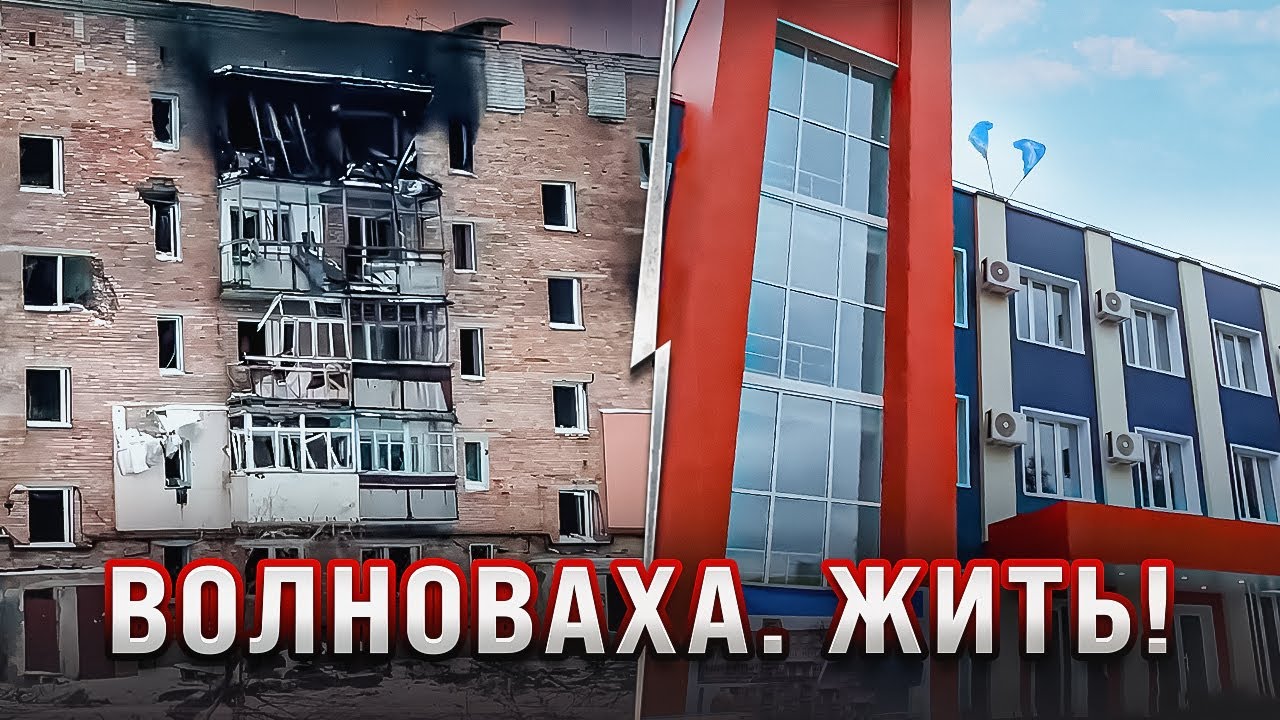 youtu.be
youtu.be
While Natostan and its proxies are busy with destruction and terrorism, Russia is focused on rebuilding the liberated territories of the federation
I completely confused. Was it an attempted coup? Was it staged? Is everybody crazy? [Wikipedia calls it a rebellion](https://en.m.wikipedia.org/wiki/Wagner_Group_rebellion) but how does that make sense??
 www.pravda.com.ua
www.pravda.com.ua
> The Office of the President of the Russian Federation anticipates that Yevgeny Prigozhin’s Wagner Group fighters will likely reach Moscow’s outskirts in the next few hours, with fighting expected near Russia’s capital.
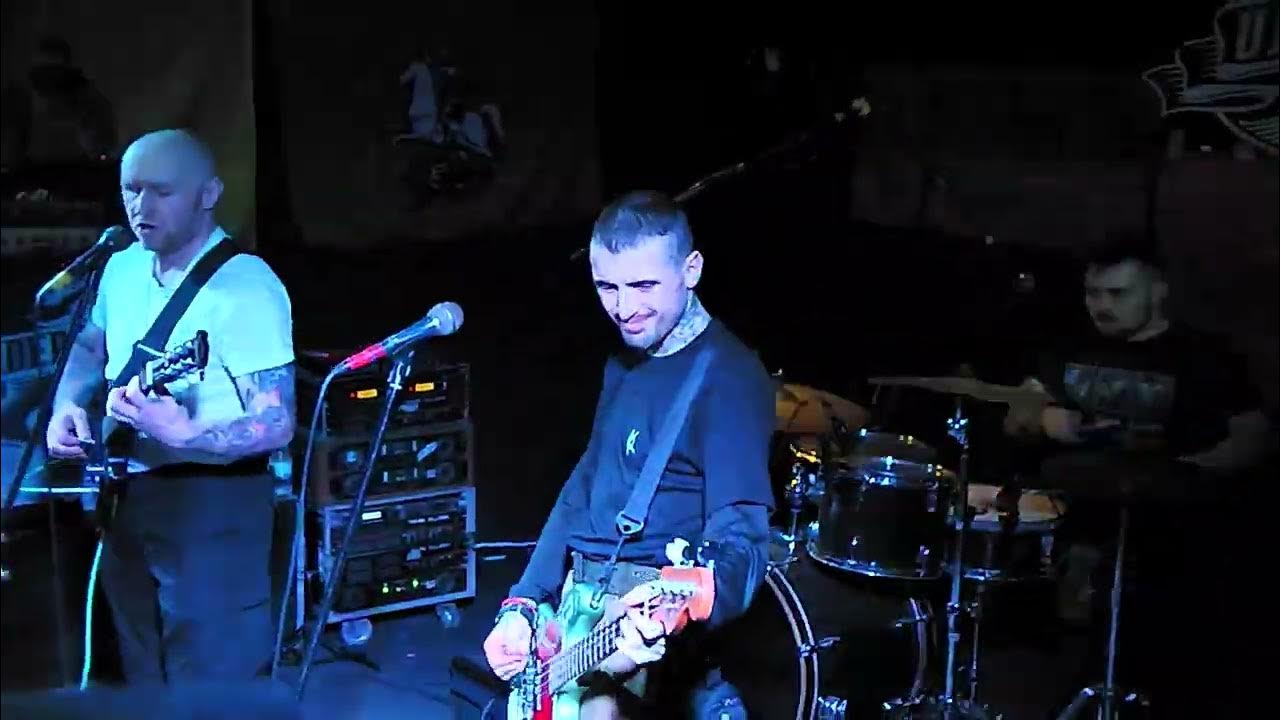 www.youtube.com
www.youtube.com
Here's fullset of Russian oi band Klowns from Kirov city playing show in Donetsk (DPR) at local antifa gig a few monthes ago
And are there any famous pro-Russian Tatars, next to Ruslan Balbek?
 web.archive.org
web.archive.org
cross-posted from: https://lemmygrad.ml/post/517073 > The ties between the two countries can “withstand” global challenges, Foreign Minister Wang Yi believes > > Chinese Foreign Minister Wang Yi said on Tuesday that the bond between the two countries was strong and stable. During his visit to Moscow, the diplomat met with Russian Security Council Secretary Nikolay Patrushev to discuss “mutually beneficial cooperation in all fields.” > > “China-Russia relations are mature in character and rock solid, able to withstand the challenges of the volatile international situation,” Wang stressed. He added that the countries were ready to defend their national interests and dignity. > > Patrushev responded to Wang by saying the relations between Moscow and Beijing had “inherent value” and “were not swayed by outside trends.” He added that a strategic partnership with China was a priority for Russia as both countries were devoted to creating “a more just world order.” > > According to Wang, the two countries, as members of the United Nations Security Council, are responsible for “keeping the peace on the planet.” > > Wang announced on Saturday during the Munich Security Conference that China had a peace proposal for the ongoing conflict in Ukraine and that “some forces might not want to see peace talks materialize.” He claimed he would present this plan at a later time. > > Chinese leader Xi Jinping is also planning a visit to Moscow in the coming months for a summit with Russian President Vladimir Putin, as reported by WSJ, citing sources familiar with the plan. > > Last week, US Secretary of State Antony Blinken stated that Washington had information that China was mulling over providing “lethal support” to Russia in the military operation in Ukraine and that this would have “consequences.” Chinese foreign ministry spokesman Wang Wenbin said during Monday's press briefing Beijing would “not accept the US’s finger-pointing or even coercion targeting China-Russia relations.”
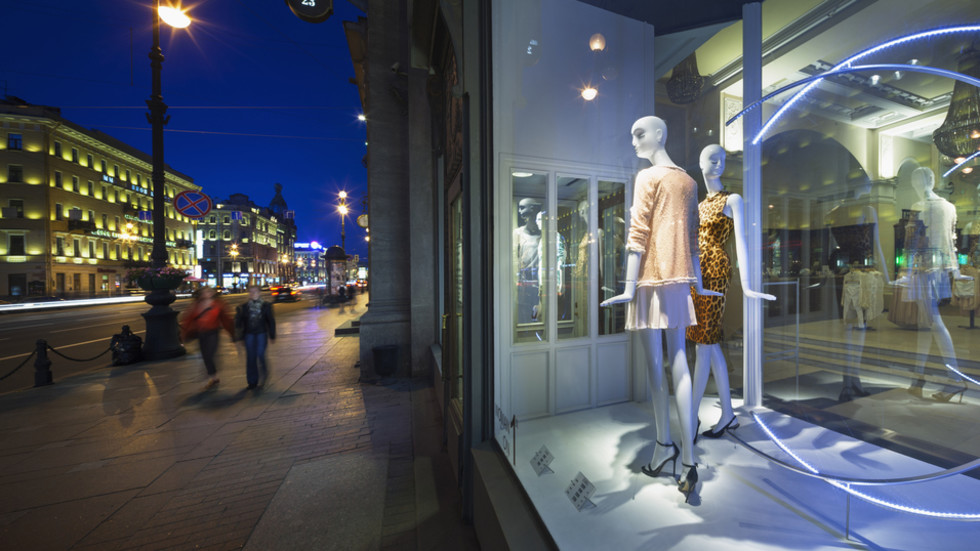 web.archive.org
web.archive.org
Nearly half of Russians have successfully found domestic substitutes for foreign products made unavailable due to sanctions, RIA Novosti reported on Wednesday, citing a poll by the NielsenIQ research company. According to the findings, over the past year, 47% of Russians “have completely switched to locally produced brands or began to buy products of local production more often.” About a third of respondents did not change their preferences and continued to buy the same brands they used to before 2022, and 17% switched to new brands, but also of foreign production. Respondents offered several reasons for turning to local brands. Over half of them said they did it to support domestic producers, while 20% pointed to an inability to find foreign analogues at a reasonable price. Another 10% stated that they could not find foreign goods that match the quality and characteristics they value, but see them in Russian products. After the start of Moscow’s military operation in Ukraine, many major Western brands announced their withdrawal from the Russian market and the suspension of investment and imports. According to economists from Switzerland’s University of St. Gallen, more than 1,400 companies have decided to quit Russia over the past year, including electronics manufacturers, retailers, automakers, clothing and food brands, hotels, banks, and restaurant chains. Yet, despite concerns that the trend would damage the Russian economy, it spurred development in domestic industries. Loss of Western brands is Russia’s gain – PutinREAD MORE: Loss of Western brands is Russia’s gain – Putin Analysts say the current situation presents a good opportunity for growth for Russian producers. Earlier this month, Russian President Vladimir Putin said the departure of Western brands has meant “our domestic manufacturers received unique opportunities for development and we must take advantage of them.” Putin added that the country’s producers have been given a chance to occupy niches, which until recently were closed to them due to competition from global players. Industry experts warn that the only concern now is whether domestic manufacturers are ready to meet increased demand, and urge companies to invest in expanding their production capabilities. “If production facilities cannot meet the growing demand, it is necessary to invest in development; saving money may lead to a desire to simplify the process, and this is fraught with the loss of quality,” Alexei Popovichev, head of the RusBrand association of manufacturers, told RIA.
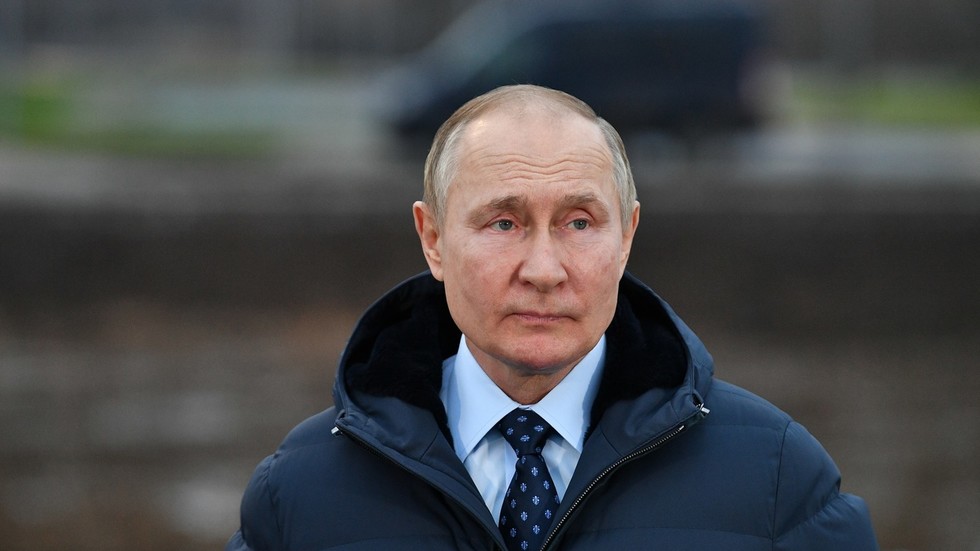 www.rt.com
www.rt.com
cross-posted from: https://lemmygrad.ml/post/429419 > 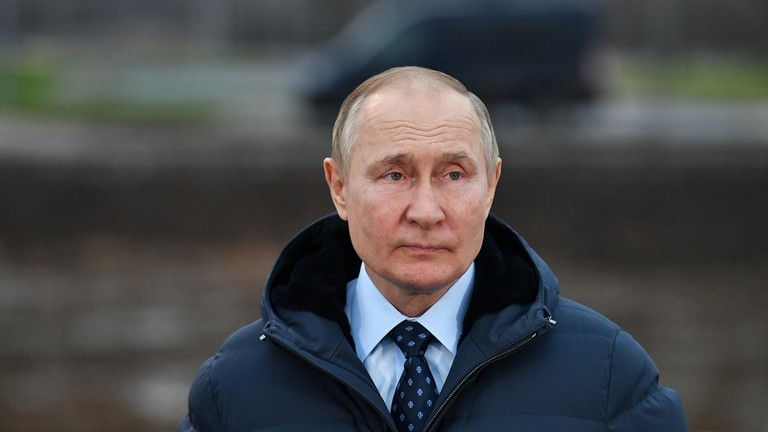 > > Russian President Vladimir Putin has said he plans to personally address people’s concerns linked to the partial mobilization, by holding a public meeting. The gathering is expected to take place during his upcoming visit to the central Tverskaya Oblast. > > “I will also certainly meet with people, talk to them,” Putin told the regional governor, Igor Rudenya, on Monday, during a discussion about various issues linked to the recent mobilization. The people need “to be heard,” the president maintained, adding that he wants to “have feedback” on the mobilization efforts. > > The president also called on the governor to promptly collect all data on issues that may have arisen during the mobilization and to inform him “in advance.” He is expected to arrive in Tverskaya Oblast for a working trip later this week. > > Putin announced the end of the partial mobilization last week. Russia had fully met the target of calling up 300,000 troops that had been set out in the presidential decree, the defense ministry said at that time. On Monday, he said that 80,000 troops had already been sent to the combat zone, and 50,000 of them have taken part in military operations. > > The president ordered the partial mobilization of reservists in Russia on September 21. The Defense Ministry said at the time that it planned to boost the strength of the standing army by calling up reservists amid the military campaign in Ukraine, which Moscow launched in late February. > > People who were called to arms in various regions reported some issues linked to the mobilization campaign on a number of occasions, including a lack of equipment or supplies as well as payment delays. The Kremlin admitted the issues and created a special coordination committee to ensure better supplies for the newly drafted troops. “Measures are being taken, and all these issues are to be resolved,” the presidential spokesman Dmitry Peskov said in late October. > > Russia sent troops into Ukraine on February 24, citing Kiev’s failure to implement the Minsk agreements, designed to give the regions of Donetsk and Lugansk special status within the Ukrainian state. In February 2022, the Kremlin recognized the Donbass republics as independent states and demanded that Ukraine officially declare itself a neutral country that will never join any Western military bloc. Kiev insists that the Russian offensive was completely unprovoked. > > In early October, the Donetsk and Lugansk People’s Republics, as well as the Zaporozhye and Kherson regions, officially became part of Russia following referendums that saw the majority of local residents vote in favor of the accession.
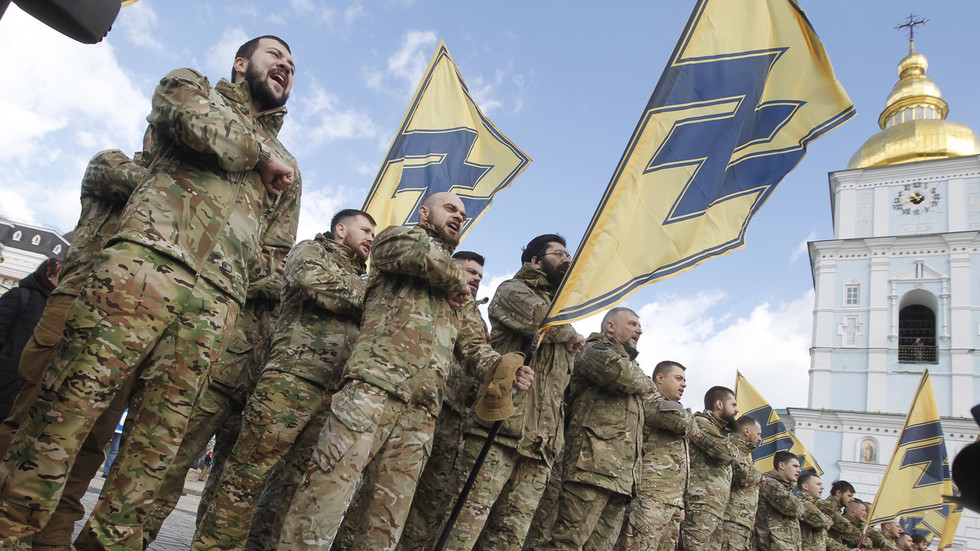 www.rt.com
www.rt.com
cross-posted from: https://lemmygrad.ml/post/427899 > The text condemning the glorification of Nazism was only previously opposed by the US and Ukraine


